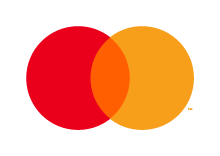Edie Lush and Claudia Romo Edelman meet three female comics who challenge bias through their jokes and their lives. “I like to play with stereotypes,” says Irish comic Catherine Bohart. “I like to upend them. I like to use them.” Noam Shuster, an Israeli, took up comedy after she failed in more traditional approaches to peacemaking. “Through comedy and performance you can reach more audiences and diverse audiences and audiences maybe I would have never met.” Sindhu Vee (her real name is Venkatanarayanan. Guess how funny she makes that!) explains that her comedy is powered by the “outsiders gaze” of being a bit different all her life. She was born and raised in South India, became a banker, moved to London and married a Dane (they have 3 kids). “I think the biggest stereotype is a mother in comedy,” She says. Co-Host Edie Lush notes how similar these three modern female comics seem to The Marvelous Mrs. Maisel, who fought to break into a man’s world of comedy sixty years ago. That’s a fictional TV show but this is real life, now.
Special Guest Julia Streets, a comic in London and host of the DiverCity Podcast, recommends facts and actions for this episode. You will also hear from Ann Cairns, the executive vice chair of MasterCard, sponsor of this season of The Global GoalsCast. A research engineer, she was the first woman to work an oil rig in the North Sea.
Edie and Claudia also try their hand at comedy, which is why they are sticking to podcasting.
Featured guests
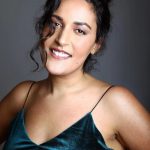

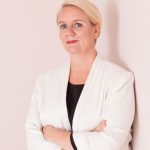
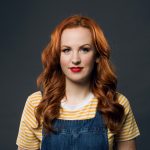
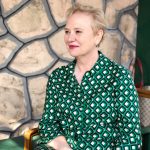
Transcript
Noam Shuster: It’s a crowd of 300 Palestinians. So I work in on stage and I look at them and I tell him, Habibi, relax. I’m only here for seven minutes, not 70 years. (and more laughter)
Noam Shuster: The political situation here is very devastating. It’s stuck. It’s very hard to talk about peace. Through comedy and performance, you can reach more audiences and diverse audiences and audiences that maybe I would have never met.
Catherine Bohart: I like to play with stereotypes. I like to unpick them. I like to upend them, I like to use them.
Sindhu Vee: Often the stereotype you’re breaking is from the gaze of the person who thinks you’re breaking it
Claudia Romo Edelman: Comedy can do more than make us laugh. It can make us think… and it can reveal what we are thinking and NOT saying. It can make us examine ourselves and the world we live in. It can disrupt power and be an agent of change. Because when we’re allowed to laugh at something, it can create a safe space to think about it, talk about it, and, hopefully, to understand it.
Edie Lush: Comedy can do all of these things because the best comedy often comes from very disconcerting places. Uncomfortable places. From the experience of being shunned or othered or oppressed or REpressed. Some of the most brilliant and insightful comedy has been birthed in some very dark places. And in this episode of the Global Goals Cast, we’re going to visit some of those places – while still managing to do some laughing along the way – with three badass, bias-busting bitchin’ women who have turned their experiences as outsiders into comedy that does a lot more than make us laugh.
Sindhu Vee: I think it gives me a natural skill in viewing both of my own life and my, the interaction of my life with the wider world as an outsider, which is really where jokes live. It’s really where jokes, live, jokes live in that space between seeing something as familiar and knowing that there’s parts of it that are,
Sindhu Vee: it’s being able to capture what’s universal in a very unique way that people haven’t thought about before. And that’s really an outsider’s gaze.
Claudia Romo Edelman: Welcome to the Global GoalsCast
The podcast that explores how we can change the world
I am Claudia Romo Edelman
Edie Lush: And I am edie lush. Claudia, this episode we look at how comedy helps us bridge the gaps between us. In other words, we take on a serious issue, intolerance, from what i guess you could call a funny angle.
Claudia Romo Edelman: stick to podcasting, Edie…
Edie Lush: ok ok. We will have real comics for you right after this.
Claudia Romo Edelman: the Second episode of season two of sponsored by Mastercard. Stay tuned later for an interview with mastercards vice chair, Ann Cairns as she tells us about how she broke stereotypes herself as the first female engineer on an oil rig in the north sea…
Edie Lush: Also our thanks to CBS News digital and to Harmon, the official sound of global goals cast.
Noam Shuster: one of the places that comedy has brought me is to be the first Jewish performer in a Palestinian comedy festival. ahh! And there were like two guys who are sitting in the front row looking at me. lIke what is this Jew gonna tell us, you know, so I walk on stage and I’m thinking, how am I going to break the ice? Like what? It’s a crowd of 300 Palestinians. So I work in on stage and I look at them and I tell him, Habibi, relax. I’m only here for seven minutes, not 70 years.
Edie Lush: That was Noam Shuster, one of the three comics whose work and ideas we want to share with you today on the Global Goals Cast.
Noam Shuster i’m Jewish. I’m mixed. Actually. My father is a Romanian Jew. When I went to Romania to look for my roots, I found out I’m a well dressed gypsy. Yeah. And My mother actually, she was born in Iran. She’s an Iranian Jew. She has eight brothers and sisters. We call them the Muslim Brotherhood. My household is really like a, the, uh, the two cultures together. And on top of that, my parents are these openminded liberals, which is really hard these days in Israel. So I, um, I grew up, um, you know, I care about the political causes, but I’m 31 and I’m single. So go to demonstrations mainly to look for a date. No, and when I go to demonstrations the problem is that the only people who look like they’ve taken a shower are the police officers.
Edie Lush: That was Noam winning jewish comedian of the year in London earlier this year. And despite the jokes, Noam is a very serious activist. Of the three comics we met she walks most squarely into an ongoing political struggle. She doesn’t shy away from it.
Claudia Romo Edelman: In fact she became a comic after failing to bridge the israeli palestinian divide in a more traditional diplomatic way as co-director at Interpeace, an organization founded by the UN that worked with populations that were excluded from traditional discussions of peace
Noam Shuster I’m not the first one probably to tell you. The political situation here is very devastating. It’s stuck. It’s very hard to talk about peace. It’s very hard to be a peace activist. It’s hard to even say the word peace here. I a role upon myself here to, to, to work with the hard liners or right wing people who are not the usual kind of peacemakers and w we had after years. You know, what I felt like I’m not. I felt like I’m not influencing anyone and I felt like I’m not able to see tangible achievements. And um, and, and basically I was fired also.
Noam Shuster we lack, we lack political horizon. We lack leaders that can dream with us, have strategies with us to our future. And a lot of young people, I think, and me included, W, W, w we choose to share our individual voices or develop ourselves creatively or explore our own, you know, voice, individual voice in the hope that we can, you know, change hearts and minds of people this is what happened to me though, you know, after I left such a huge, you know, organization and so many efforts and really believing in what I’m doing. I was basically left alone on a stage with a mic
Noam Shuster: so I think the turn to comedy was a, an action for me to A) stop censoring myself B ) bringing back my creative muscle to the, to the game also. me knowing that through comedy and performance, you can reach more audiences and diverse audiences and audiences that maybe I would have never met, Israel and Palestine. It’s a small territory and we move between contradicting narratives and communities and places all the time and because I speak Arabic because I have so many contradicting identities within me that I bring into the comedy, so I’m able to navigate into walk in between all of these audiences and these identities in hope that what I was not able to do in an organization set or a political set, I will be able to do a little bit through the laughter and a performance in front of people.
Noam Schuster: It is always just amazing to see how people can really laugh when you’re so exposed and you talk about the more painful parts of yourself, but people also laugh about funny stuff and ridiculous stuff and empowering stuff and, and nasty stuff and stuff.
Edie Lush: And that gets into why we’re doing an episode on comedy. By talking about the more painful parts of ourselves, by laughing at the pain, we can better understand each other. And if we don’t understand each other, we won’t ever achieve the global goals, let alone by 2030.
Claudia Romo Edelman: Whether it’s Gender Equity (Goal 5), or Climate Action (Goal 13) or Peace and Justice (Goal 16) – if we’re going to accomplish the Global Goals, we need to do it together. And sometimes for Noam, just being who she is, doing what she does, can help people come together and begin understanding each other.
Noam Shuster I have a, uh, a comedy show with a, with another female comedian who comes from a more religious right wing background and when we have shows they’re full, they’re always sold out and we basically bring into one auditorium, our audience, which they come from such different sectors of society, right, right wing and left wing people. And then we’re bringing together a religious and secular and Arabs and Jews. And they both sit down and they hear two women, and just having two women in a comedy show here is already in a revolutionary enough because there are so many male comedians here every comedy night that I go and performed is always like eight or nine men and, um, and maybe there is another woman besides me.
Edie Lush: Noam is doing some special things with her work on stage, and her new career is just getting started. I asked her what she’s learned so far as a comedian that she wished she had known as a peace activist.
Noam Shuster Not to take things so seriously. To be freer to say what the hell is on my mind, not to censor myself,it’s not an easy place to be in, to be a woman here, um, with this mixed background and to talk about these issues. it’s not perfect all the time and I’m not funny all the time and I’m just learning the first steps in this crazy world. But I just feel like right now this is the, the most effective tool that is available to me in order to be heard.
Edie Lush: Thanks to our partner One Young World for introducing us to Noam Shuster.
Claudia Romo Edelman: Catherine Bohart is pulling from some slightly different life experience than Noam Shuster. Catherine is from Ireland and she’s Catholic, in fact her father is a deacon. On stage, Catherine brings the audience inside her Obsessive Compulsive Disorder, talks about what it’s like growing up in a religious family, and shares her experience as a bisexual woman living in a world that can be…less than understanding sometimes.
Catherine Bohart So the first person I ever came out to, I told my mother and I was really nervous. But now I don’t mind coming out cause I’m used to it. Cause when you’re a queer you have to come out a lot, right? Like if to come out repeatedly. And I get fairly common responses, right? I got two responses on the reg. I’ll say I’m dating a lady, I’m dating a woman. And people will say eh – no. Say I’m dating a woman, that’s my girlfriend. They’ll say, nope, ah no, no, no, your hair is too long. So you can’t argue with science. Can you? Fair enough! That’s fine. But no, I will say the best response I’ve ever is when I came out to my mom. Right. Cause my mom has a unique way of both being supportive but also making things weird. So my mom just waited for my dad to leave the room and then she said, me too.
It’s not what you want to hear, is it. I mean she’s a nice Irish lady. So she did clarify right, she said you know what Catherine, I’m not gay, I’m not gay, I’m not gay. Because straight people like to say that in threes. It’s like the thing, it’s all sort of protective spell don’t they? She said I’m not not gay. Right. And it’s not that I’d leave your father for a woman. I wouldn’t, and it’s not even that I’d want something bad to happen to him. No, I don’t. Right. It’s just that were he to die. Then I would be with a woman. Her first words of comfort. Right. Cause I can, best case scenario, I think my mom saying one of two things there isn’t she? She’s either saying, oh, I just have to be depressed to be a lesbian. Or She’s saying, I’ve waited for one of my children to come out to say I regret all of my life choices.
Claudia Romo Edelman: That was Catherine Bohart, on The Stand Up Sketch Show which you can watch on Catch Up on ITV Hub. Edie spoke to her after stalking her at an open mic show….
Edie Lush: I literally rugby tackled her
Edie Lush: What I loved about your show, was that you were sort of smashing up against all kinds of stereotypes about sexuality, about women, about mental health. So I wonder if breaking down stereotypes is part of your agenda or if in fact you were just looking for a more flexible job.
Catherine Bohart: Um, I guess there’s like two distinct aspects of that. The first in terms of in doing, doing comedy, no, let’s be like totally honest. I did it because I wasn’t a very good actor and I thought I might like it. And then I absolutely loved it and um, but I, uh, yeah, where in terms of my material though, and I do think there’s something about like, just being a woman who’s queer and talking about that who were even if you don’t like unpick stereotypes, you have the advantage of already challenging stereotypes because you don’t, as I’ve often been told, when I get to clubs, look like a comedian, um, and that in of itself is challenging for people, which is good.
Catherine Bohart: I do think that like the portrayal of lesianism is often so, um, singular or maybe it wasn’t even true. Maybe like it’s cause queer people have a largely varied, uh output. I think it’s that people interpret lesbianism is like short hair shirt wearing masculine presenting women and actually 1) one that’s great 2) straight women can present those ways. 3), not all of us look the same. No more than with straight people bi people, gay people, we all, you know, it’s like almost like um your sexuality isn’t an aesthetic. Um or it can be if you want it to be, but it doesn’t have to be. And uh, yeah, I just think people have a very binary sense of what queerness looks like.
Catherine Bohart: I like to play with stereotypes. I like to unpick them. I like to upend them, I like to use them. Like I like knowing what people think, what they see when I come on stage because that’s the only way I can play with that. If I’m like fully acknowledging the people see a young like fem girly girl. Um, so I, yeah, I, I do play with stereotypes. And it is intentional, but that’s also because that’s what I’m interested in. Um, and I think it will be almost, it’s almost harder not to as a female stand up right now because that’s what the world is challenging at the moment. And it’s hard not to be interested in and engaged by that.
Edie Lush: So, um, what topics do you think audiences respond to or does it depend on the venue and the night?
Catherine Bohart: Um, it definitely depends on the venue and the night, like if I go to Brighton, hello, gender and queer theory, uh, if I go to Belfast, the stuff about religion resonated much more. Um, but I, I, to be honest, I try not to second guess audiences because I’ve been wrong so often. Like I’ve rocked up a place that so many times and been like, they’re gonna hate me. And then being like, oh, I, I prejudged them, not the other way round. Um, but I will say the one that universally people find hardest to laugh at is probably the mental health stuff. But that’s just because I come at it from quite a seri… Like I say, I have this illness, I was in hospital, so it’s the real kind. Um, and some people go, Whoa, that’s heavy duty. And then you have to give them lots of permission to laugh. But that’s fun too.
Edie Lush: I feel like mental health has, has, or the attitudes towards mental health have, have changed in the last couple of years, but it’s almost a kind of daily battle. Um, you know, and it isn’t something that people are still, I think very happy with talking about on a personal level.
Catherine Bohart: Yeah. And I get that because it’s so interwoven with guilt and failure and vulnerability and, but I, I do think that’s changing and and I think people are more understanding of it. That’s why I like joking about it because I think it’s a good way of explaining. The one thing I think we’re still really struggling with is asking questions. Like, we make a lot of generalizations and the thing about mental health is it’s so personal and so specific. So would that be like encouraging extreme rude or nosiness? I think allowing another person to explain to you what they mean about their mental illness or their mental health specifically to them is really important.
Edie: I had such a great time watching Catherine on stage and getting to know her a little bit afterword. It’s just fun listening to her talk. Noam too. And they’re both busting stereotypes about their looks. Apparently they dont look like…a comic…or a jew…or gay
Claudia Romo Edelman: I face this in my own life… (Say this in your own succinct words, Claudia) I relate to Noam…i get it a lot, a tall Mexican Jew??? l
Edie Lush: When we come back – another bias buster…. a comedian from India who shows us how intolerance and bigotry can find their roots in the same places as great jokes. And how you choose to use your experience, and your words, can make a world of difference.
Claudia Romo Edelman: But first – we’d like you to meet a remarkable executive from our sponsor MasterCard. Talk about breaking stereotypes. She’s an engineer, AND (pause ) – the first woman to work a North sea oil rig.
Ann Cairns My name is Ann Cairns and I’m the executive vice chairman of Mastercard.
Edie Lush: Tell me a little bit about your path to getting here because it wasn’t entirely straightforward, was it?
Ann Cairns No, indeed. I grew up in a small mining village in the north of England. I was about 11 years old when the first man landed on the moon and um, and I thought, wouldn’t it be great to be an astronaut? I think that was my first thought about that I wanted to be in the science field and subsequently, um, I studied pure maths at university and became a research engineer.
Edie Lush: And tell me about that. Was that difficult? Was it odd? Were you one of many women or just a few women at the time?
Ann Cairns Well, actually I was the first woman ever recruited into the research station in Newcastle and uh, and I actually thought once I was there that I would love to work off shore and I became the first woman to work off shore in Britain as well.
Edie Lush: So did anyone ever tell you you can’t do this or did you have an internal drive that made you think, it doesn’t matter what other people think?
Ann Cairns I always felt that if I wanted to do something I could reach out and ask for it. My Dad was always very supportive of anything that I wanted to do and when I wanted to move off shore I actually just rang the head of offshore engineering at British Gas and told him that’s what I wanted to do and he said, you do realize you don’t have to do an offshore survival course where basically you escape from, you know, helicopters that are sunk in pools. They throw you into the North Sea and you put out kerosene fires. And I said, well, that’s just the fun part. And so actually I did that. off the coast of Yarmouth in April, which was freezing and at the time they gave me a mans suit because they never had a woman offshore. And when they threw me into the sea, I nearly died of exposure because all the water poured into the back of the suit because I had a kind of elfin size face at the time in my twenties and it just didn’t fit properly. So I had to have one made subsequently, all of these things that you actually never think about. But when I was working on the, on the rigs in the North Sea and the Irish sea, um, I made some good friends because many of the guys out there who are out there for two weeks at a time, were doing things like open university degrees or practicing for the London marathon by running around the heli-pad and so on. And so there’s quite a lot of sort of social engagement and activity and good chats that we had when we were working there.
Claudia Romo Edelman: What is up with those women at MasterCard – Shamina Singh… now Ann Cairns, executive vice chair of mastercard. So coolll…
Edie Lush: Later, we will hear about her work at MasterCard to further financial inclusion. Want to have dinner w Ann
Edie Lush: More from Ann cairns later but now for another comic, Sindhu Vee
Sindhu Vee: I’m a comic. Um, I’m a comic, uh, in London and I was born and raised in India, but I’ve lived in London for 22 years. And this is where I came up in comedy, its very much my comedy home.
Edie Lush: But your name, first of all, isn’t Sindu v, right?
Sindhu Vee: No, no, no. My first name is Sindhu, but my surname is Vankatnaraynan, which is just absurd. You can’t go to open mic night and be like, Hey, that’s my name. First of all, no one will give you a spot. And even if they do by the time they’ve said your name times up to three minutes are up.
Edie Lush: this episode is about breaking stereotypes. And I wonder if you feel like you do, do you break stereotypes?
Sindhu Vee: You know, I’m told all the time that I do, So I guess yes, I, I’m told that. It comes up, like someone will come and ask me to do a set at a girls’ school.
Edie Lush: and what do you think those stereotypes are?
Sindhu Vee: I think one of the big ones is that I’m a, uh, I’m a brown woman, raised in India and you know, I’ve, so sometimes it’s that I’ve married outside my culture, which really in this day and age for Indians is really not big a stereotype, but okay, fine some people think, oh, you’re a woman in banking.
Sindhu Vee: That’s a stereotype for some people it’s a brown woman in banking. And I feel like saying, do you know how good we are at math? Often the stereotype you’re breaking is from the gaze of the person who thinks you’re breaking it
Um, so I think there’s that. And I appreciate that. I can understand it. I think the biggest stereotype is a mother in comedy.
Sindhu Vee: I had a very unconventional along so many different dimensions, life growing up, always on the outside of whatever experience was going on. And that’s very hard to feel that it’s familiar. Never seen it before. You are different. You’re not like anyone else. Um, so many different levels.
Edie Lush: So do you think that makes you uh, better on stage cause you feel like you’ve been an outsider before?
Sindhu Vee: I don’t know if it makes me better, but I think it gives me a natural skill in the interaction of my life with the wider world as an outsider, which is really where jokes live. Jokes live in that space between seeing something as familiar and knowing that there’s parts of it that are……….it’s being able to capture what’s universal in a very unique way that people haven’t thought about before. And that’s really an outsider’s gaze. So I think, I, I think I do have that skill thanks to my upbringing and I’ve learned to hone it because often I’ll have an intuition and I’ll not put it out because I’ll think about it and I’ll say, oh, no, no, no, no. And I think that’s what that thing I’m doing inside, outside, you know, it’s also makes me very nonjudgmental because when you’ve been an outsider, you’re usually being judged.
Sindhu Vee: And the great thing about standup is the joke is a good joke is really always on you,
Edie Lush: right
Sindhu Vee: You’re always the butt of the joke.
Julia Streets: Edie and Claudia, it’s wonderful to be here. My name’s Julia streets and I, I’m an entrepreneur in the world of financial services. I’m a standup comedian and I’m very proud to have a podcast called diverse city podcasts, all about diversity and inclusion in financial services. Three facts. My first fact, which really surprises me particularly as a gay woman in the city who spent 20 years of my career thinking, please don’t ask me what I did at the weekend is I was really surprised by stonewalls data recently that says that 62% of all millennial graduates who are LGBT plus go back into the closet as they enter the workforce. My second fact is regarding ethnic minorities. There’s a report that came out last year called the minority report that said that of 2.5 million sample size 46% which is nearly half of all respondents have been encouraged into a career that did not reflect their own personal career aspirations. I’m particularly thinking about mental health and I’m not sure whether you’re aware, but one in eight days of sick leave can be directly attributed to mental health and the mental health foundation basically came out some data that said that if organizations invest in supporting employee mental health in aggregate, they would add 8 billion to the bottom line of the UK economy alone. On the podcast we’ve now interviewed, it must be about 80 or 90 leading lights from business leaders and diversity and inclusion specialists. And these are my three actions. One embedded the conversation about diversity inclusion into a commercial imperative. We need the skills, we need the talent and this is going to drive better outcomes and better performance. The second is to support and support needs to go to the middle management layers. The hiring managers often called the permafrost layer or the sticky middle. And if you’ve been hired in a certain way, trained in a certain way, motivated and peed in a certain way, of course you’re going to always do the same thing. So that my whole points to diversity inclusion specialists and organizations is support to them to take the step, take courage to employ people who are very different from them. So my third is about calling out and every organization, if they want to truly embrace diversity and inclusion, but also to drive performance, have highly motivated teams that are all delivering better outcomes is about creating true call-out cultures so that certain behaviors will no longer persist.
Edie Lush: That was Julia Streets. Reminder to follow us on social media @globalgoalscast . Like subscribe, download, rate us.
Claudia Romo Edelman: Your recommendation does matter. So do it. We’re doing this to improve the state of the world. You can do your part in rating us so that we can keep on doing that.
Edie Lush: Earlier we introduced you to the Executive V C of Mastercard we heard how Ann Cairns was the first woman to work in the north sea. Now we want you to hear how she looks at inclusion in the financial world.
Ann Cairns: one of the things that’s really hampering for women actually is that they can’t get collateral. In many places, they can’t inherit property. And although I grew up loving pride and prejudice, that was a story based on the fact that these five girls we’re going to be penniless because their father couldn’t pass on the estate to them. Makes a great story. But I don’t think any of us would want to be Elizabeth Bennet today.
Edie Lush:And tell me how you see Mastercard making a real change, making a difference in this aspect.
Ann Cairns: Well, I know that we’ve been working around the world to bring in about 370 million people into the financial system since we started. And in order to do that we have to build whole ecosystems. We have to work with governments. We have to work with other global companies. We have to work with local companies on the ground and we actually have to work with people, explaining to them how to use our products and services, how to run their businesses in a digital way and so there’s a lot of education involved on the ground.
Edie Lush:And tell me about how the pace of change, how fast things are changing makes that challenging or an opportunity.
Ann Cairns: I think there’s a big opportunity in developing countries because they don’t have the infrastructure that we have here in the Western world with all of the machines and the computers and so on. So everything goes mobile very quickly and you start to solve things in a very simple way because you’re trying to help people who are living on one or $2 a day and so you’re trying to come up with a solution that’s very inexpensive and can reach a mass amount of people and sometimes in very remote areas.
Edie Lush: Give me an example of where you’ve seen real change happen like that.
Ann Cairns: So some great examples of where I’ve seen inclusion working, uh, first of all in Egypt, alimony payments, the government actually intervene in this. They collect the money from the men and they have the women queuing to actually receive the cash. And we’ve automated that process now so that women can receive that money digitally. Um, I think that’s, you know, quite a change. And uh, and I’m looking for other examples around the world where we could help women in this way. So that’s the first one. The second is I’ve been involved in a project that actually, uh, we’d been doing in Kenya and Tanzania where we’ve been building a solution in our labs in Kenya that we set it with the gates foundation and we built a product that allows farmers to sell their sunflower oil online. Um, well it could be any farming product, but we’d actually found an entrepreneur in Tanzania who would pay female farmers slightly more to encourage them to actually adopt selling their product online. And the thing is, they can do it on any type of phone, but they get real time prices and, uh, and obviously it gives them a better access to market without involving all of the middleman. And that product was built by Africans for Africans in our labs in Kenya.
Credits: Music in this episode was by Andrew Philips, Angelica Garcia, Simon James, Katie Crone, Amy Edwards, Ashish Pilliwal ,Alex Vallejo and Ellis. This episode was made possible thanks to the support of Mastercard, CBS News digital, and Harmon, the official sound of global goals cast. This episode would not have been possible without Keith Reynolds, founder and president of spoke media who lent us his ear.
